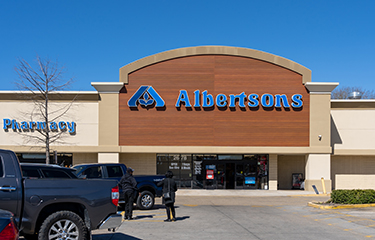Two prominent U.S. grocery store chains will be merging, they announced on 14 October.
Kroger’s acquisition of Albertsons is likely to impact how the retailer sources its seafood products.
Under the definitive agreement, Cincinnati, Ohio-based Kroger will acquire all of the outstanding shares of Boise, Idaho-based Albertsons Companies’ common and preferred stock for around USD 24.6 billion (EUR 25 billion). Albertsons will also spin off a newly created standalone public company, SpinCo, at closing in conjunction with regulatory clearance.
With the acquisition, Kroger nearly doubles its total number of locations and will have a bigger brick-and-mortar footprint than Walmart, Insider Intelligence Senior Analyst Blake Droesch said in a statement provided to SeafoodSource. Kroger operates more than 2,700 stores, while Albertsons owns nearly 2,300 stores.
"Kroger's acquisition of Albertsons would have a significant impact on the U.S. grocery landscape, both in physical retail and online. Walmart will still be the leader in grocery sales, but the acquisition would allow Kroger to get closer in competition,” Droesch said.
Seafood suppliers are likely to be negatively impacted, as the two mammoth retailers’ expanded base of 85 million households and 66 distribution centers gives them enhanced buying power to negotiate lower prices with vendors.
"With a broader selection of fresh products and an expanded Our Brands portfolio, we will be better-positioned to deliver fresher products at a great value to more customers than ever before,” Kroger CEO Rodney McMullen said on a conference call with investors, per Progressive Grocer. “This is particularly important in today's inflationary environment with rising inflationary pressures and people increasingly shopping for groceries and eating at home. Our personalized portfolio along with expanded promotions and benefits will help customers save on the products they want the most and help top relieve the inflationary pressures facing shoppers across the country.”
Kroger's End-to-End Fresh initiative is likely to be expanded across Albertsons' footprint, enabling the combined company to optimize its supply chain "to deliver the freshest products from field to table to more customers more quickly," Kroger said in a press release.
"By bringing together Kroger's Fresh for Everyone strategy and Albertsons Cos.' Customers for Life strategy, the combined company will expand its portfolio of fresh products, extend shelf lives, and accelerate the penetration of its fresh [products] portfolio," it said.
The merger also creates a mega grocery e-commerce service.
"On the digital side, Kroger can make use of Albertsons' locations to drive click-and-collect growth, while Albertsons can leverage Kroger's fulfillment infrastructure to bring its online capabilities in-house, instead of relying on third-parties like Instacart and DoorDash,” Droesch said.
Both Albertsons and Kroger have robust sustainable seafood sourcing initiatives, and Albertsons relaunched its Waterfront Bistro private label seafood brand for National Seafood Month.
Waterfront Bistro features the Responsible Choice logo indicating that 100 percent of its seafood items meet Albertsons Companies' responsible seafood policy, Albertson said in a press release.
Photo courtesy of JHVEPhoto/Shutterstock







